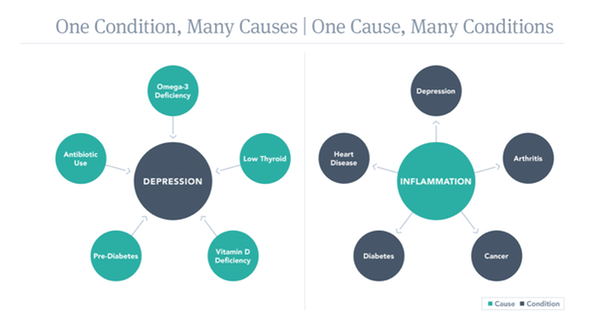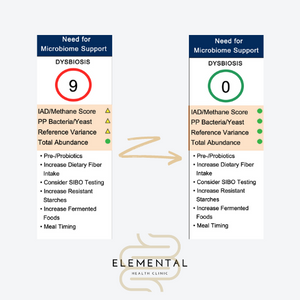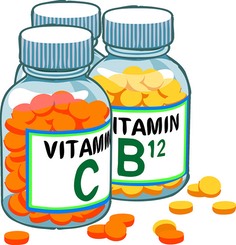Local Mum, GP and Functional Medicine practitioner, Dr Nirusa Kumaran blogs for us about eveything to do with health, from a Functional Medicine perspective

Exercise Benefits for Health Optimisation

We’ve all been told from a young age that exercise is good for us. We also hear a lot about exercise for weight loss, but what about the benefits of it for other aspects of health?
In this post, we will look into some of the benefits of exercise for different areas of the body.
Brain
According to studies, physical activity helps us fall asleep easier, and stay asleep during the night, as well as improving the quality of sleep, helping to reduce insomnia.
Stress is a big factor to consider in regards to insomnia. Interval training as well as moderate intensity exercise has been proven to improve stress levels by reducing stress-related hormones such as cortisol and adrenaline.
Physical activity has also been shown to have a beneficial effect on depression and anxiety as well as improving self-concept.
Regular exercise encourages the release of certain neurotransmitters such as dopamine, endorphine, and endocannabinoids.
Dopamine is important for feeling pleasure as well as it has a positive effect on regulating heart rate and sleep cycles, motivation, mood, memory and pain processing.
Endorphins and endocannabinoids are also increasing the feeling of pleasure and also blocking pain response.
Another element to consider is neuroplasticity, which improves the ability of the nervous system to change, modify, and adapt its structure and function in response to both internal and external stimuli which is important for learning new skills.
In response to exercise, our heart pumps faster, increasing the supply of oxygen and nutrients to our brain which may improve memory and overall brain function. It also helps to reduce cognitive decline and dementia, and promotes the regeneration of myelin.
Energy
When we exercise, the cells in our muscles are encouraged to produce more mitochondria - the energy powerhouses of the body. Mitochondria create fuel using glucose from food and oxygen.
Exercise also increases oxygen production, which aids the body to function better and to use energy more efficiently.
Joints, bones and muscles
Our bones and joints have little to no blood supply and rely on synovial fluid to keep them nourished and protected. Exercise provides a constant, steady flow of synovial fluid.
Being physically active also improves our range of movement in the joints.
Higher impact exercises such as weight training encourages osteoblast activity (cells that help to build bone) which is important in prevention of osteoporosis by building denser, stronger bones. Exercise also has a beneficial effect on ligaments.
Taking part in regular exercise may also reduce the chances of falls by improving balance and increasing muscle strength.
Reproductive Hormones
Males
Testosterone levels are shown to be increased by exercise which is important to maintain muscle mass, strength, controls body fat percentage and sperm count. With age, testosterone levels gradually decrease, so keeping up with an exercise routine may improve testosterone levels and slow the effects of aging.
Females
Exercise has been shown to have beneficial effect on oestrogen balance, which may reduce the risk for developing breast cancer as well as improve symptoms of Menopause and Premenstrual Syndrome.
Improve your gut health - it will transform your life

Did you know poor gut health can be a ‘silent’ root cause for many chronic health problems and illnesses? Signs such as bloating, infrequent or too frequent bowel motions, excess wind, acid reflux are all signs your gut may not be functioning correctly.
It was said by Hippocrates over 2500 years ago that all diseases begin in the gut. There is still a great deal of truth to this.
Research now shows that an imbalanced gut microbiome ‘Dysbiosis’ or a leaky gut also known as increased intestinal permeability can be the precursor for many health problems such as anxiety/depression, fatigue, autoimmune problems, skin diseases such as eczema/psoriasis/acne, insulin/metabolic problems, hormonal problems and more. Your gut is connected to every system in the body, especially our brain, so failing the connection of gut health to mental health could result in needless medications and unnecessary struggle.
Whilst modern day advances have done miracles for our health and wellbeing, it has also had detrimental impacts on our microbiome. Frequent/recurrent antibiotic use, ultra-processed foods, refined sugars, toxins and more have all been shown to disrupt our gut microbiome, leading to the rise of more bad bugs than good.
Don’t despair, steps can be taken to improve our gut health such as regularly eating a variety of fruits and vegetables, having pre and probiotic foods, spending time in nature, eating mindfully and more.
Just a year ago I had multiple digestive concerns. I analysed my microbiome and discovered that my dysbiosis score was 9/10 (very concerning!). I was also struggling with fatigue and an autoimmune condition. One year later, my dysbiosis score is 0/10, after adopting a methodical approach to address my gut.


Nutrients for Hashimoto's Thyroiditis

Hashimoto’s Thyroiditis, which is an autoimmune disorder, is the most common form of Hypothyroidism. 90% of those with hypothyroidism have Hashimoto's Thyroiditis.
As with other chronic conditions, nutritional deficiencies are very common in people with Hashimoto’s.
Key nutrients to support your thyroid health
The following nutrients are supporting your thyroid by reducing inflammation as well as by influencing epigenetic factors - the modifiable expression of your genes which are based on lifestylefactors such as diet and stress.
Zinc
Zinc has many functions in your body including the support of the adaptive immune system by balancing T cell differentiation (T cells are helping to fight pathogens). It also balances inflammatory responses and acts as an antioxidant. Zinc inhibits the pro-inflammatory Th17 lymphocytes which may play a role in the development of autoimmune conditions such as Hashimoto’s.
Foods high in zinc: kale, shellfish, legumes, nuts and seeds, egg, poultry, asparagus, turkey, peas.
Vitamin D
Vitamins D plays a large role in the body’s immune function. It helps to reduce autoimmune antibodies and inflammation (it contains anti-inflammatory cytokines), it modulates immune cell expression by reducing the pro-inflammatory Th1 cell activity and promotes the balance between Th1 and Th2 immune cells. Furthermore, sufficient levels of vitamin D may decrease the adaptive immune system’s antigen expression, therefore reducing the attack on the thyroid tissues.
Food sources of vitamin D: eggs, oily fish, beef liver, mushrooms
Also, your body synthesises vitamin D from the sun, so spending time outside when it is sunny is a great way of increasing your levels.
Selenium
The thyroid gland contains the largest amount of Selenium/gram in your body. Selenium is very important for converting T4 (thyroxine) to T3 (triiodothyronine) which is the form that the cells are able to utilise. Selenium also have a protective effect against tissue damage in the thyroid gland and may contribute to the reduction in TPO antibodies which are prevalent in Hashimoto’s.
Selenium rich foods: rice, beans, brazil nuts, fish, shellfish, eggs, turkey, chicken, beef
Iodine
Iodine is an important building block of thyroid hormones.
The body contains about 15 to 20 mg of iodine and 70-80% of it can be found in the thyroid gland.
The thyroid gland combines iodine with tyrosine (a type of amino acid) to form the thyroid hormones T4 and T3. This process is regulated by TSH (thyroid stimulating hormone).
However, too much iodine can have a negative effect on thyroid health, so it is important to be mindful especially with supplementation.
Iodine sources: Sea vegetables (kelp, wakame, dulse), Sea food (shrimp, scallops, cod, sardines, salmones, tuna), eggs, chicken, beef liver
Vitamin A
Vitamin A, a fat soluble vitamin is important in reducing inflammatory responses via the regulation of T and B cell activity. It also regulates TSH secretion and thyroid hormone metabolism. Vitamin A also may decrease the body’s autoimmune reactions.
Vitamin A rich foods: leafy green vegetables (kale, spinach, broccoli), orange and yellow vegetables (carrots, sweet potatoes, pumpkin) tomatoes, red bell pepper, beef liver. Oily fish, eggs.
My personal experience with Hashimoto's Thyroiditis

Why is Hypothyroidism an important topic for me?
Because I too have Hashimoto's Thyroiditis. And I feel let down by the way I was managed in our current conventional health system.
Not once did a Doctor or Healthcare professional give me the advice or knowledge I share with you in my masterclass. It is information I did not learn in medical school.
I was symptomatic but instead of thinking of subclinical hypothyroidism as the diagnosis for my health symptoms, I was prescribed laxatives. Why? Because the current guidelines say subclinical hypothyroidism doesn't need treatment unless your TSH goes above 10.
When I was pregnant with my eldest daughter, again the doctors did not know I needed to take Levothyroxine. I went my whole first trimester without taking it. My TPO antibodies were tested and they were close to 900, not once did any health professional give me advice on how to prevent my subclinical hypothyroidism from turning into full-blown Hashimoto's. Had I known the information I know now, I could have put my thyroid dysfunction into REMISSION.
It is never too late though, after applying dietary and lifestyle changes, and addressing toxicity and poor gut health, I have REDUCED my TPO antibody levels and REDUCED the dose of Levothyroxine I'm taking. Most importantly, I've reduced the inflammation in my body.
Remember inflammation drives the autoimmunity and puts you at risk of another autoimmune disease.
Do you want to reduce your TPO antibody levels?
It is not your fault... the current conventional health system does not address the root causes for why you developed hypothyroidism. It does not monitor your TPO antibody levels to see if your inflammation is improving. It doesn't even look into ways to reduce inflammation!
There simply isn't the time or the resources to offer the above.
Yet by addressing the root causes and by reducing inflammation, you can improve the symptoms of Hypothyroidism, and you can reduce your TPO antibody levels.
April
What does the thyroid do?

This month I’m sharing a blog written by our Nutritional Therapist Fanni Ropoli all about Hashimoto's Thyoiditis and how this can be managed using nutritional therapy
The thyroid is a butterfly shaped gland in our neck. The hormones it produces have a job to regulate our body’s digestive functions, metabolic rate, brain development, muscle functions and help us to maintain healthy bones.
What is Hashimoto’s Thyroiditis?
Hashimoto’s is a form of autoimmune hypothyroidism in which our own immune system attacks the cells of the thyroid gland leading to inflammation and insufficient production of the thyroid hormones.
Potential causes:
• Genetic predisposition
• Stress
• High toxic load (mercury, lead)
• Gut dysbiosis
• Nutrient deficiencies such as selenium, potassium, iodine, copper, magnesium, zinc, iron, vitamin A, C, D and B
Signs and symptoms:
• Fatigue
• Unexplained weight gain
• Brittle nails
• Thinning hair
• Dry skin
• Constipation
• Fertility issues
• Irregular periods
• Goiter (swollen neck due to inflamed and enlarged thyroid gland)
• Joint pain, stiffness
• Muscle pain, tenderness
• Increased cold sensitivity
What to to eat:
• Fruits - ideally 2-3 portions a day. For example, apple, berries, pineapple etc.
• Vegetables - ideally 8-10 portions a day (all colours of the rainbow)
• High Quality Protein - beans and pulses, grass-fed, organic chicken and turkey,
• Healthy Fats - fish (salmon, krill etc.), flaxseed, avocado, olive oil etc.
• Fermented Foods - sauerkraut, kimchee, miso, tempeh
• Spices and Herbs - garlic, turmeric, ginger, cloves
What to avoid:
• Refined carbohydrates - sugar, white bread, pasta, white rice, pastries etc.
• Fried foods - fish and chips, doughnuts, etc.
• Processed foods and drinks - hot dogs, sausages, canned juices, etc.
• Red meat - burgers, steaks etc.
• Saturated and Trans Fats - margarine and lard etc.

Dr Nirusa Kumaran BMBS, BMedSci, DRCOG, DFSRH, MRCGP, Dip IBLM/BSLM, AFMCP is a Kingston Mum of two young daughters, a practising NHS and private GP, certified lifestyle medicine physician and Functional Medicine specialist. She has over 10 years of clinical experience working as a medical doctor in the UK and working for a practice attached to London University. Nirusa is passionate about holistic, integrative and patient-centred care. After facing her own health challenges and her youngest daughter’s health problems with severe eczema and multiple food allergies at the tender age of five weeks she was driven to explore root causes and look for potential ways to reverse and restore optimal health and vitality. This led her to the practice of functional medicine and she has since completed further qualifications as a functional medicine practitioner.
Contact:
Dr Nirusa Kumaran
Medical Director and Founder
Email: nirusa03@gmail.com
